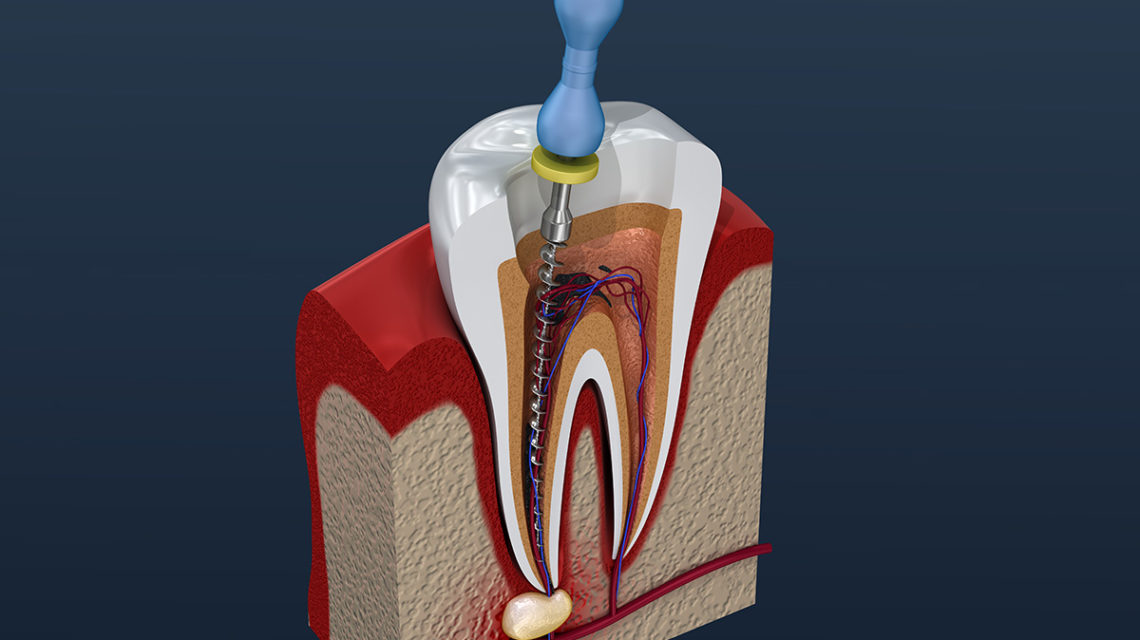When the pulp in the teeth, which contains the blood vessels, nerves, and living connective tissues, becomes inflamed, it is said to be infected, root canal treatment, also known as endodontic treatment, is required.
A root canal procedure is done to salvage a fractured or badly infected tooth rather than extracting it.
Cavities, fractured or broken teeth due to accidents or trauma, gum infections, and recurrent dental treatment to a particular tooth are the most prevalent causes of tooth damage or infection. Inflammation, infection and irreparable pulp damage can all result from these issues. At times, the person will be in agonizing pain. When the pulp dries, the discomfort may go away, but it usually comes back as the infection grows.
If you have a toothache or gum discomfort, you should see a general dentist right away. This procedure is performed by the best dentist or a root canal expert.
What are the benefits of having a root canal procedure?
- Ensure that the illness does not spread to other teeth.
- Reduce the signs and symptoms of an infected tooth.
- Reduce your chances of breaking your jaw.
- Extraction of teeth is no longer necessary.
Understanding the warning signs that might indicate if you need root canal treatment:
You may be unaware that you have an infected tooth in some circumstances. However, many people are aware of some signs and symptoms. The indicators that you need a root canal are as follows:
Tooth pain that won’t go away: Tooth pain can be caused by a variety of dental issues. You may need root canal therapy if you feel discomfort deep in your tooth. You may also experience discomfort in your jaw, cheeks, or other teeth.
Heat and cold sensitivity: If your tooth suffers from drinking hot coffee or eating ice cream, you may need root canal therapy. This is particularly true if the discomfort lasts more than a few seconds.
Swollen gums: When a tooth becomes infected, pus can build up around it. Gums that are puffy, inflamed, or sensitive are a result of this.
You can get a pimple or a boil on your gums: The pimple may drain pus from the infected tooth, leaving an unpleasant taste or odour.
Swollen jaw: Occasionally, pus does not discharge from the wound. As a result, your jaw may swell noticeably.
Tooth discoloration: When the pulp of a tooth becomes infected, it darkens the colour of the tooth. A shortage of blood supply to the tooth causes this.
Severe pain when pressure is applied: The nerves surrounding the pulp may be destroyed if you experience pain when you chew or touch your teeth.
A cracked tooth: Bacteria can reach all the way into the tooth pulp if you shatter a tooth in an accident, while playing sports, or even by biting down on anything hard.
Loose teeth: It’s possible that an infected tooth will feel looser. This is due to the fact that the fluid from an infected pulp can soften the tooth-supporting bone.
Is root canal therapy a highly painful experience?
Patients frequently express anxiety about their future root canal procedures. Root canals have a poor rep, but you’ll be relieved to find that they’re not as bad as they seem; the majority of patients found root canal therapy to be less painful than they expected. Because root canals are frequently utilized to ease dental and face discomfort, patients leave the hospital feeling better than when they arrived. The top 10 dental hospitals in Coimbatore provide advanced root canal treatment at an affordable price from the best specialists.
Pain during the root canal procedure:
- Infected or irritated pulp tissue, which can cause severe toothaches, is treated with root canal therapy. Endodontic therapy can help to relieve this discomfort.
- Because of the use of local anaesthesia and current endodontic methods, many patients find that having a root canal is no more painful than having a cavity filled.
- The majority of people say they were comfortable throughout their operation, with some pressure and movement but no discomfort.
- Endodontic therapy begins with numbing the afflicted tooth and surrounding tissue using a local anaesthetic.
- The tooth is then opened so that the endodontic specialists may access the pulp and extract it.
- The chamber and roots are washed, sculpted, and disinfected before being filled with a rubber-like substance to seal the tooth and prevent infection.
- The treated tooth will be repaired with a dental filling or crown by your dentist.
- Despite popular belief, root canal therapy is a reasonably quick and painless way to save natural teeth from needing to be pulled and replaced.
After the procedure, pain of the root canal therapy:
You may experience sensitivity and discomfort as the local anaesthetic wears off in the hours following your root canal treatment. This is especially true if the tooth was diseased or uncomfortable before the root canal procedure.
After root canal therapy, sensitivity usually lasts only a few days. If the pain persists beyond this period, reach out to your dental surgeon.
How does the root canal treatment procedure save the tooth?
When you have a root canal or other endodontic therapy, the inflamed or infected pulp is removed, and before being filled and sealed with gutta-percha, a rubber-like material, the inside of the tooth is washed and disinfected. After that, the tooth is protected with a crown or filling and continues to operate normally.
Endodontic therapy allows you to keep your natural smile, consume the things you enjoy, and avoid the need for additional dental procedures. When teeth that have had root canal therapy are adequately cared for, they can last a lifetime.
How long does it take to recover from a root canal procedure?
Root canal recovery usually takes less than a week. Mild discomfort may persist for a few days, although medication may help. See your doctor if you’re experiencing substantial pain or discomfort that lasts more than a week.
When is the root canal performed?
When dental X-rays reveal that a bacterial infection has destroyed the pulp, root canal therapy is required. If bacteria enter the pulp, it may become inflamed, allowing the germs to grow and spread. A pulp infection causes pain when eating or drinking hot or cold foods and beverages. Consult the Best Hospitals In Coimbatore in case you are looking for root canal treatment.

